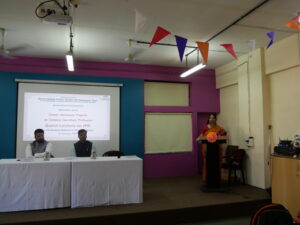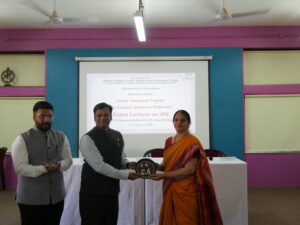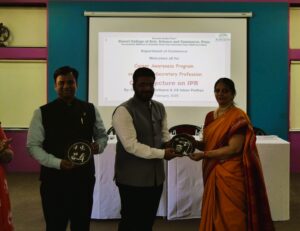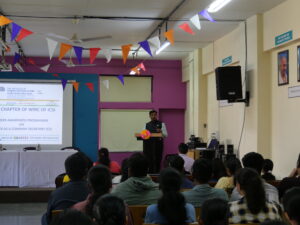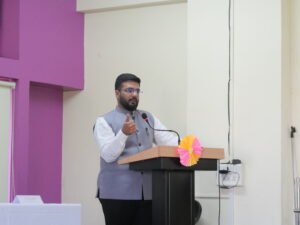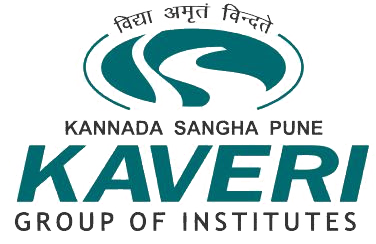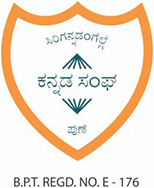The Department of Commerce organized a Career Awareness Program on Company Secretary Profession and an insightful guest lecture on Intellectual Property Rights (IPR) On 13th February 2025, The session featured two eminent speakers, CS IP Sandeep Kulkarni, Chairman of Pune Chapter of WIRC of ICSI, Practicing Company Secretary, and Insolvency Professional, and CS Ishan Padhye, Fellow Member of ICSI and Member of the Managing Committee of Pune Chapter of ICSI. The lecture was attended by commerce students eager to expand their knowledge of IPR.
Dr. Deepa Sathe, Coordinator – BCOM, MCOM introduced the purpose of organising this awareness session and requested the experts to address the students on industry expectations and career opportunities after doing CS Course and also share insights on IPR – meaning and compliances.
CS IP Sandeep Kulkarni began the lecture by discussing the reasons why students should consider Company Secretary (CS) as a profession and career choice. He highlighted the growing demand for skilled professionals in the field of corporate governance and compliance. He emphasized the diverse career opportunities available for Company Secretaries, including roles in corporate advisory, legal compliance, and strategic management. His insights inspired students to explore this dynamic and rewarding career path. Following this, he provided an overview of Intellectual Property Rights (IPR), emphasizing their importance in protecting innovations and creative works. He explained how IPR encourages creativity and innovation by ensuring that inventors and creators receive proper recognition and financial benefits.
CS Ishan Padhye elaborated on the differences between Patent, Copyright, and Trademark. He explained that patents protect technological inventions and provide exclusive rights to the inventor, whereas copyrights safeguard original literary, artistic, and musical works. He further clarified that trademarks help identify and distinguish products or services through unique symbols, logos, or brand names. The session also addressed the importance of compliance with IPR laws and regulations. The speakers explained the relevance of the TRIPS Agreement (Trade-Related Aspects of Intellectual Property Rights) in harmonizing IPR laws globally.
The lecture was highly interactive, with students actively participating and posing questions about patent filing procedures, international copyright laws, and challenges related to protecting digital content. The speakers provided practical insights and real-life examples, which enhanced the learning experience for the students. It has received an overwhelming response of 98 students from BCOM.
